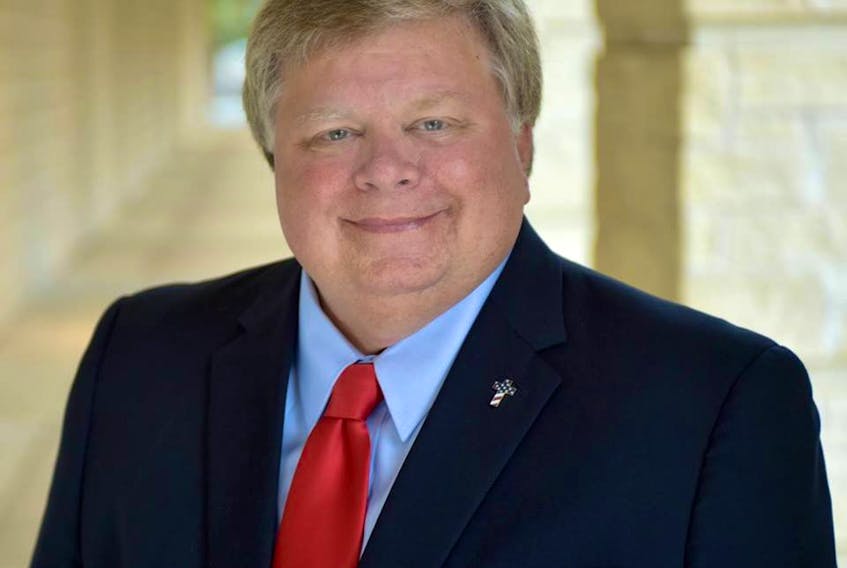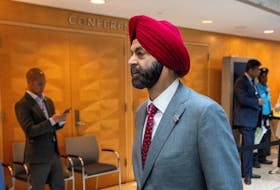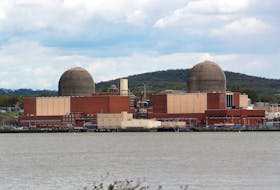Halifax, NS
The Republican mayor of Georgetown, Texas, is no fan of the Trump administration’s take on climate change.
“Folks think that since I’m a Republican that me and (Donald) Trump agree on all environmental and energy issues,” Mayor Dale Ross, a self-professed right-wing Republican, said during a panel discussion on climate change Sunday that wrapped up the three-day Halifax International Security Forum.
“We rarely agree in those areas. During the campaign, he said there is clean coal. There is no such thing as clean coal. He said he’s going to bring coal jobs back to the U.S. They are never coming back, they’re dead. There are about 30,000 coal miners right now and those jobs need to be transitioned into wind and solar industries. Texas is No. 1 in solar energy and No. 5 in wind energy in the U.S. And that’s going to improve. . . . In five years, we’ll be No. 1 in wind and solar and that’s a resource in Texas that will just go for thousands and thousands of years.”
President Trump announced in June that the U.S. was withdrawing from the Paris accord — the historic global agreement, reached in 2015, to set targets for reducing greenhouse gas emissions and limiting the rise in average global temperatures.
“It’s interesting that he withdrew knowing that it wouldn’t have any negative impact (in the U.S.) in his first four years,” Ross said.
Located 50 kilometres north of Austin, Georgetown has a population of 65,000. Their homes, public buildings and businesses are all lighted and heated by wind and solar energy. The town’s electrical consumers have seen a 24 per cent drop in prices since the transition to wind and solar power nearly 10 years ago.
“If you win the economic argument, then, by default you win the environmental argument,” Ross said.
Nicolas Tenzer, founder of a political study centre in France, said mindsets about climate change differ from country to country.
“The economic argument is part of the argument that we have to raise, but it is not the only one,” Tenzer said. “It’s
the cost of not fighting climate change.
“It is the fight of each citizen. Each citizen has to convince his or her neighbour. In my apartment in Paris, people are putting glass bottles in the wrong bins. It is your responsibility to put it right.”
Carl Bildt, the former prime minister of Sweden, painted a bleak picture of population shifts and the necessary energy infrastructure needed to support that shift.
“By 2040, world energy demand is going to be up 30 per cent,” Bildt said. “India needs to prepare energy infrastructure equivalent to what exists in the entire European Union by 2040. China needs infrastructure equal to what the U.S. has by 2040.”
Bildt said it was projected at the last world climate change conference that the world is headed for an increase in temperature of more than three per cent.
“Africa, what’s going to happen there? In the mid-1990s, the population of the EU and all of Africa was roughly the same. By 2050, Nigeria will be bigger than the EU and by the end of the century, 40 per cent of all the working age population of the world will be in Africa. If we have climate stress happening there in the most rapidly expanding part of the world, security implications are going to be vast.”
Bildt said the energy infrastructure requirements in China, India and Africa are enormous.
“It’s not a question of adding small things, a wind turbine here and there.
“We need to be very aggressive in helping them with the transformation and helping them with the new technologies. Without the new technologies that we are employing
now in our countries, it won’t work.”
Ross said that technology must centre around renewable energy.
“I look at it from the long term — 10,000 years from now, fossil fuels are probably not in reach for us. In Texas, the wind and the sun will probably be shining and blowing 10,000 years from now. I think people need to come to the realization that wind and solar are the future.”
Ross said the land around windmills can be repurposed as farm land and the cost of regulating those sources of energy is practically nil.
“It’s a very unintrusive way to produce energy. I’m seeing the future and it’s solar panels and windmills.”
THE CHRONICLE HERALD/ FRANCIS CAMPBELL









